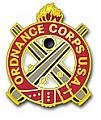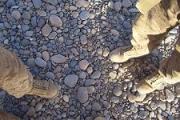Marc,
Exactly, and I'll borrow a concept I saw on a discussion thread on the Global Guerrilla site, where the commentor made reference to the "Red Queen" hypothesis, which is in short is, "for an evolutionary system, continuing development is needed just in order to maintain its fitness relative to the systems it is co-evolving with". Since the author was obviously better educated than I was, I couldn't follow it all, but he appeared to be making parallels to organizations as biosystems. The thoughts that I developed off that was that networked organizations (if they are organizations) adapt on an open feedback system. To me that means they adapt to changes "outside" of their organization. Bureaucratic organizations adapt based on input from within their organization, thus they actually be living in a parallel reality that isn't reality at all. I think you touch upon this point when you address the State Department, it is organized to deal with other nations, not non-state actors, and I have seen little change (as an outsider, beyond words and concepts) that are they adapting to this new player in the global arena. I think the State Department is much more bureaucratic than the military. They have several highly educated employees who are company men, but very few intellectuals capable of accepting and adapting input from outside their closed feedback loop. Their leadership, for the most part, wants to protect the status quo. Read the "Ugly American" and you'll see things haven't changed that much. Unlike the State Department, the CIA, Commerce, and assorted other agencies, the military must achieve results, and is far and away the nation's leader (outside of niche industries) for change. We have wars and conflicts to win, we can't wait on the rest of the government to catch up. We need educated, experienced, and men and women with the courage to be objective enough to understand the true cause and effect nature of the conflict, and not blindly rely on doctrine. PhD is a misnomer, but we should encourage our officers and select NCOs to pursue this type of liberal education (not liberal politics, don't confuse the two). More courses should be made available for free on-line, etc. When I was trying to stand up a local government in a region in Iraq I sure as heck which I had that knowledge at my finger tips.
I'll drag part of this conversation/thread into the interagency section eventually, because I want to pursue organization structure and roles in more depth. However, I don't think we strayed too far off course from the underlying issue of this thread, which is PhD's in the military. I think I am building a case on why we need them.












Bookmarks